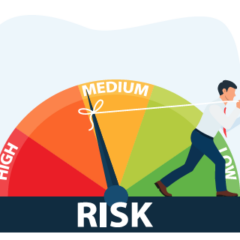Published on
Holiday Helpline: Thrombosis Edition
Answers to your Commonly Asked Questions
Reviewed by Aaron Aday, MD, MS
The 2023 holiday season is officially here!
But alongside the holiday cheer,
There are several questions that we hear
At this time of year…
Table of Contents
- Answers to your Commonly Asked Questions
- Q: Every Christmas, my sister gives me a gift card for a massage. However, I recently had a blood clot. Is it safe to get my massage this year?
- Q: I have to make a long trip to see my family for the holidays – a 5-hour plane ride followed by a 2-hour car ride. Does long-haul travel increase my risk for a blood clot?
- Q: I’m on a blood thinner. Can I drink alcohol at upcoming holiday celebrations?
Below you can find the answers to some recent questions submitted by patients. If you’ve had a blood clot and/or take blood thinners, this information can help you have a happy—and safe—holiday season!
Q: Every Christmas, my sister gives me a gift card for a massage. However, I recently had a blood clot. Is it safe to get my massage this year?
A: It’s important to exercise caution when getting a massage after a clot. If you’re taking blood thinners, you may bruise easily. Deep tissue massages should be avoided since they can increase the risk of bleeding, but lighter pressure is okay. In addition, if the clot is still present in your leg, then it’s best to avoid massage of the area until it’s gone (which can take up to a few months). The risk is that the massage could break off a piece of the clot, which could then travel to your lungs. This can be extremely dangerous and even fatal.
Q: I have to make a long trip to see my family for the holidays – a 5-hour plane ride followed by a 2-hour car ride. Does long-haul travel increase my risk for a blood clot?
A: The risk of getting a blood clot from traveling is small, but some people have a higher risk, like those who are overweight, older, pregnant, have a history of blood clots, or have limited mobility.
It’s unclear if long-distance air travel is any riskier than car or train travel, but there are factors unique to airplanes that can affect risk, like sitting in a tight seat and not being able to move around much. Your body takes in less oxygen when air pressure is lower, and some data also suggest that lower oxygen levels can trigger the body’s clotting response. Finally, dehydration can increase the risk of a clot; drinking coffee or alcohol on a flight can fasttrack dehydration. And if you tend to sleep on a long flight, then you likely aren’t moving around or hydrating.
The good news is that there are several commonsense methods that can help lower your risk, whether you’re traveling by plane, train, or car:
- If flying, choose a bulkhead seat or see if your flight offers extra legroom seating. If not, avoid putting a bag under the seat in front of you so you have more space for your legs and feet.
- Try to move around every 1-2 hours. Selecting an aisle seat on a plane or train can make it easier to get up and walk. In a car, try to stop every couple of hours so you can get out of the car and stretch your legs a bit.
- Avoid sleeping in awkward positions for long periods of time.
- Try not to cross your legs.
- Avoid wearing tight clothing.
- Drink lots of water and avoid alcohol, caffeine, and sedatives.
Experts recommend these commonsense measures for most people, but those at higher clot risk may need to wear compression stockings or talk to their clinician about taking medicine to prevent blood clots
Q: I’m on a blood thinner. Can I drink alcohol at upcoming holiday celebrations?
A: If you’re on a blood thinner, you should always consult with your doctor or pharmacist before consuming alcohol. There are a few considerations to note:
- Alcohol and blood thinners can independently raise the risk of bleeding – so when the two are combined, your risk of bleeding may be increased further.
- Some blood thinners (like warfarin) have known interactions with alcohol, so drinking in moderation is key (which generally translates to no more than 1-2 drinks maximum in one sitting).
- Heavy alcohol consumption can lead to stomach irritation, which, when combined with the effect of blood thinners, could raise the risk of bleeding in your stomach, also known as gastrointestinal or GI bleeding.
- Alcohol-related falls can lead to serious bleeding, especially if you hit your head when you fall. Use caution when drinking alcohol and sit down if you’re not feeling steady on your feet.
*Originally published in The Beat — December 2023. Read the full newsletter here.



